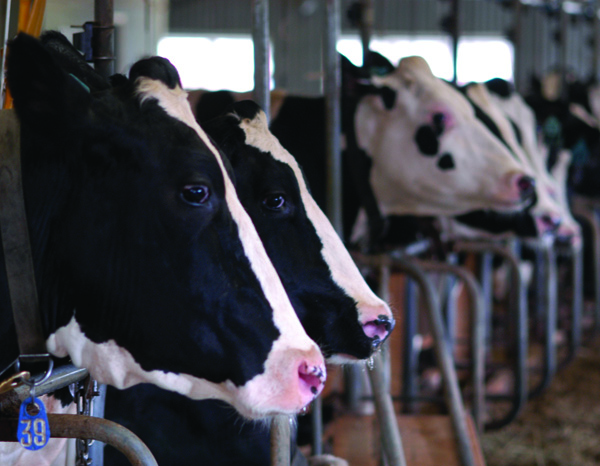
Mastitis resistance to enhance dairy food safety
Mastitis is one of the most important economic impacts on Maine dairy farms. When prototheca is present on a farm, it can spread easily from the environment into the udder. Prototheca elevates the somatic cell count, a critical measure of milk quality for the dairy. Of Maine farms from which prototheca was isolated, one has had severe economic impact and the organism has persisted in the milking system/cows. Two have had recurrent positive samples and a few clinical cases. Dairy farmers are an important agricultural resource for Maine, but the small farmers are especially at risk of economic losses due to mastitis. This research in investigating an effective mean to quickly determine the presence and type of Prototheca in a herd of dairy cattle. As dairy producers become aware of the test, they should be more likely to use the screening process. Detection of this organism will allow Extension specialists and veterinarians to counsel producers about changing methods of water delivery, cleaning/sanitizing methods, and repeated testing/culling to keep the disease under control. Rapid detection and prompt action should allow reduction of prototheca mastitis, elevation of milk quality, and improved price per pound of milk. If a “cow-side” test can be developed, an industry partnership will be sought to bring the diagnostic test to the producer. As more information about the prevalence of prototheca mastitis is developed, the disease should decrease in incidence due to improved hygiene and culling of infected cattle. We expect that at least 500 dairy producers will become aware of the diagnostic tests, of the risks of prototheca to their farms, and of the possible public health risks of prototheca in the food chain. We expect that this knowledge and screening for the disease will save dairy producers a possible $5,000 per year, due to the possible loss of infected cows (culling). Thus, a conservative estimate of $2,500,000 per year could be realized.
Investigator: Lichtenwalner, A.
Unit: School of Food and Agriculture
Termination Date: 30-Sep-17
